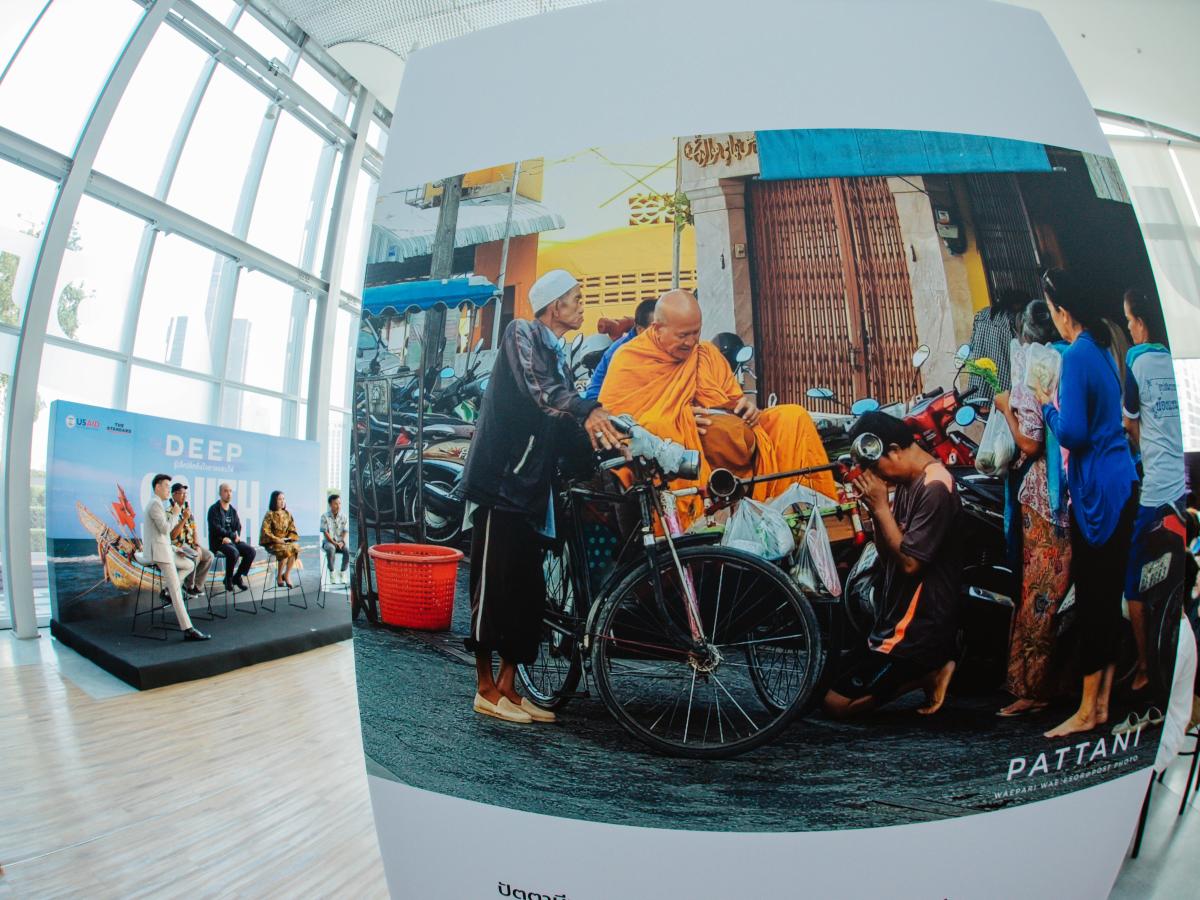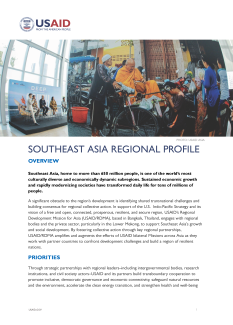OVERVIEW
Southeast Asia, home to more than 650 million people, is one of the world’s most culturally diverse and economically dynamic sub-regions. Sustained economic growth and rapidly modernizing societies have transformed daily life for tens of millions of people.
A significant obstacle to the region’s development is identifying shared transnational challenges and building consensus for regional collective action. In support of the U.S. Indo-Pacific Strategy and its vision of a free and open, connected, prosperous, resilient, and secure region, USAID’s Regional Development Mission for Asia (USAID/RDMA), based in Bangkok, Thailand, engages with regional bodies and the private sector, particularly in the Lower Mekong, to support Southeast Asia’s growth and social development. By fostering collective action through key regional partnerships, USAID/RDMA amplifies and augments the efforts of USAID bilateral Missions across Asia as they work with partner countries to confront development challenges and build a region of resilient nations.
PRIORITIES
Through strategic partnerships with regional leaders–including intergovernmental bodies, research institutions, and civil society actors–USAID and its partners build transboundary cooperation to promote inclusive, democratic governance and economic connectivity, safeguard natural resources and the environment, accelerate the clean energy transition, and strengthen health and well-being across Southeast Asia.
RDMA leads USAID’s strategic policy engagement with the Association for Southeast Asian Nations (ASEAN), and oversees USAID staff in the U.S. Mission to ASEAN based in Jakarta, Indonesia. USAID/RDMA provides operational and technical programming support to bilateral missions across Asia, including through our Asia Regional Training Center and Client Experience Team. USAID/RDMA also is the base of operations for several regional offices serving Asia, including the Bureau for Humanitarian Assistance, the Indo-Pacific Hub for East Asia and Pacific, the Office of the Inspector General, and the Office for Transition Initiatives.
GOVERNANCE AND HUMAN RIGHTS
Across Southeast Asia, USAID/RDMA supports civil society and other democratic institutions by expanding human rights networks and deepening their engagement with regional institutions, the private sector, and the public to advance media freedom, counter trafficking in persons, and promote peacebuilding.
ECONOMIC CONNECTIVITY
Southeast Asia’s efforts at economic integration make the region one of the most vulnerable to climate-related, economic, and health-related shocks that continue to intensify. USAID/RDMA enhances economic connectivity in Southeast Asia by focusing on inclusive digital ecosystems and sustainable inclusive economic growth, leading to improved living standards, declining poverty rates, assistance to vulnerable populations, closing gender gaps–promoting economic resilience, inclusive growth, and prosperity in Southeast Asia.
ENVIRONMENT AND ENERGY
Addressing climate change, energy and environmental security, as well as countering transnational environmental crime, is critical for a prosperous, resilient, and secure Indo-Pacific. USAID/RDMA is strengthening regional environmental and energy systems and connectivity across Southeast Asia, assisting the region to better respond to emerging threats, address the effects of climate change, and promote the sustainable use of shared natural resources–including helping the region transition to clean energy.
HEALTH
Health has improved in most countries in Asia over the last several decades. However, public health threats such as the COVID-19 pandemic underscore critical remaining gaps in the insufficient and overstretched health systems, compromising their ability to respond effectively and rapidly. Over the past twenty years, USAID’s investments in Asia, both bilaterally and regionally, have contributed to promising health developments. USAID/RDMA is building upon those developments by strengthening bilateral and regional partnerships to address regional health threats including emerging infectious diseases, HIV, and malaria.


